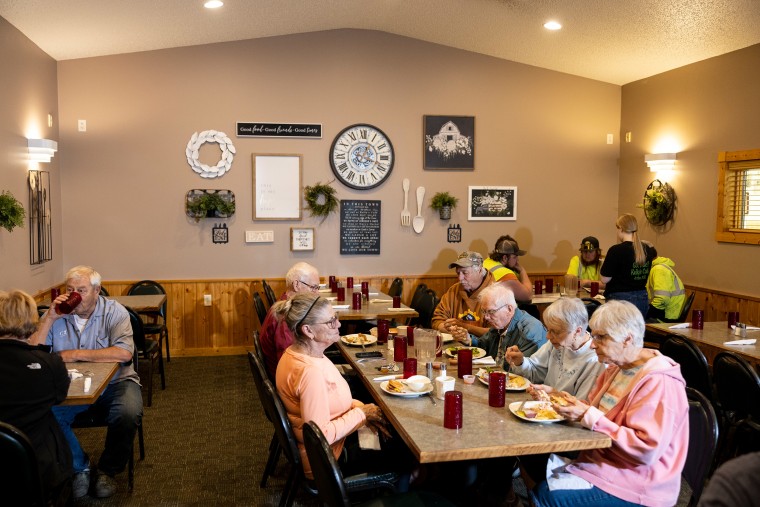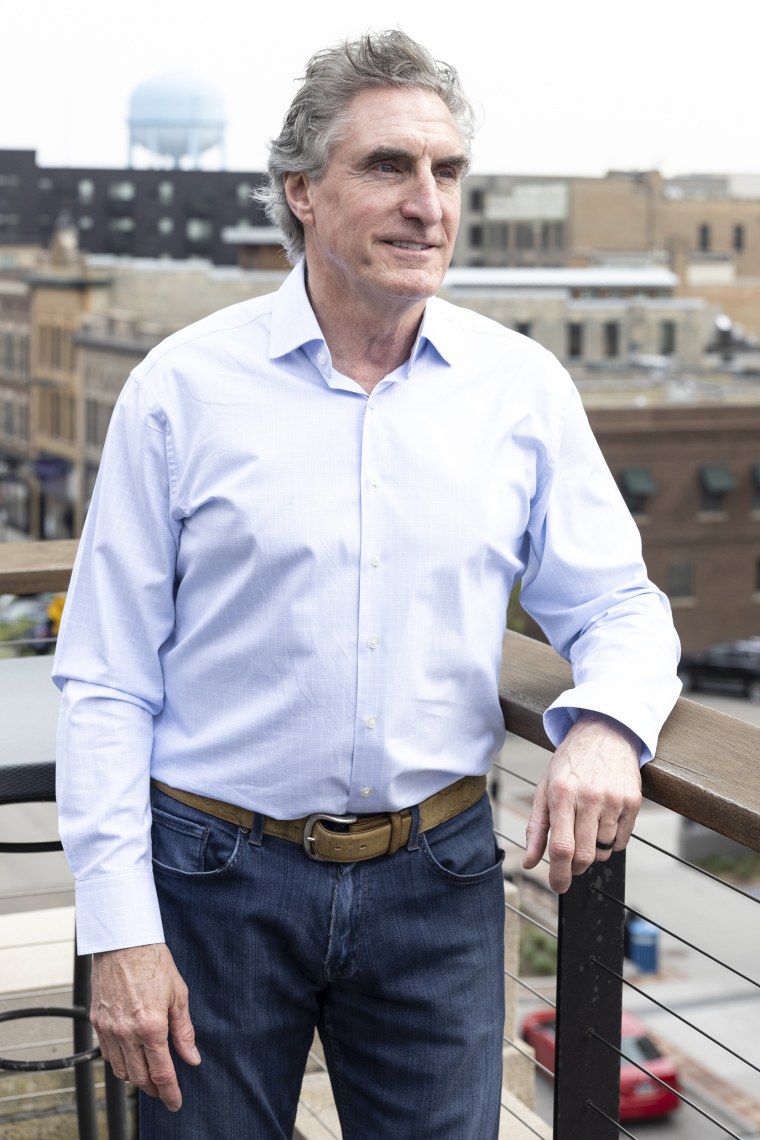
“The number of competitors in some ways was noise, because some were good, some were bad, some were whatever,” Burgum, riding shotgun in an SUV, said in an interview with NBC News — his first since his interest in a White House bid became known. “The signal was that software was going to change the world. So I had the signal right.”
Burgum’s probable candidacy follows DeSantis’ struggles to assert himself as the GOP’s strongest alternative to Trump. Undeterred by a field that could soon grow even wider, Burgum has begun assembling a staff and collecting video footage that could be used for ads that the multimillionaire said he is prepared to self-fund.
“I’ve always had my own skin in the game,” Burgum said. “I’ve always felt like I would never ask others to invest if I weren’t always investing.”
Though he sidestepped questions about his would-be rivals, he made clear his message would differ from theirs and that he sees a path for himself by focusing less on culture war grievances and more on the economy, energy policy and national security.
“Everything else,” he said, “gets better if we solve those problems.”
And Burgum — who hands out medallions bearing the seal of North Dakota and a promise of gratitude and humility — consciously or not presented several sharp contrasts with the combative DeSantis.



Both governors recently signed legislation banning abortion at six weeks and restricting the rights of transgender people in their states. And both have veto-proof GOP majorities in their legislatures. But Burgum doesn’t ordinarily emphasize such topics, while DeSantis championed a bill that banned teaching gender identity and sexual orientation in classrooms up to third grade — legislation that critics branded the “Don’t Say Gay” bill.
“Cultural issues can be handled by states, and they can be handled by school boards and local libraries and city commissions,” Burgum said. “And there are certain things that the federal government has to focus on, and that’s what our campaign is going to be about.”
At another point, Burgum recalled his defense of masks during the height of the pandemic as a plea for empathy at a time when the country had “devolved into a little bit of neighbors fighting neighbors.” (DeSantis once mocked students for wearing masks at a news conference.) Burgum also bragged about North Dakota’s youthful population gains — a testament, he said, to young families finding opportunity in the state. (DeSantis often brags about Florida being the warm-weather destination of choice for elderly retirees.)

Burgum prefers fashionably dark jeans to slacks and talks passionately about architecture and urban planning. From the rooftop patio of the Fargo development firm he founded, he offered a virtual tour of the city’s downtown, pointing out where power lines had been moved underground and how parking areas could be built to make better use of retail and residential space.
While riding between Fargo and Arthur, he described himself as the kind of traditional pro-business, anti-regulation Republican that thrived more before Trump’s takeover of the party. Even so, he resisted any urge to draw more explicit distinctions and over nearly four hours never mentioned Trump.
“You wouldn’t enter a market as someone with 0% market share and lead off with criticism of the others,” he said, acknowledging his lack of name-recognition. “You basically have to make the case as to why people should pay attention, why people should invest some time in getting to understand what the alternatives are.”
‘What’s software?’
Arthur, population 328, is little more than a half-hour drive from Fargo and takes up but a dusty 1.5 square miles.
Burgum’s family has controlled the grain elevator that towers over Main Street since Theodore Roosevelt’s presidency. It remains, after all these years, the centerpiece of a business portfolio that has ranged from the area’s first electric company to the modern advent of Big Green Egg grills and smokers.
Early on, Burgum shared his family’s entrepreneurial spirit while also asserting his independence. Drawn by the mystique of the outdoors, he spent two months hitchhiking to and around Alaska in the summer after his sophomore year at North Dakota State.
Senior year, with energy costs rising, he borrowed a friend’s red 1947 Chevy pickup and started a chimney-sweeping service that brought in at least $40 per job. A local newspaper published photos of him scrambling around rooftops in a top hat and tuxedo, looking like Dick Van Dyke in “Mary Poppins.” Impressed by his hustle, one of Burgum’s professors encouraged him to apply to business schools.

 Latest Breaking News Online News Portal
Latest Breaking News Online News Portal




